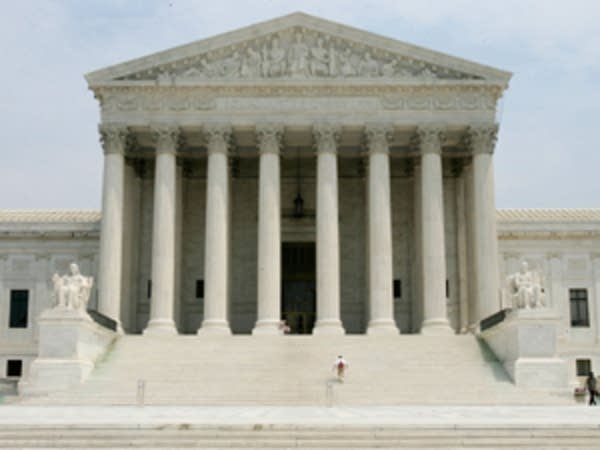Court ruling renews calls for tougher voter ID laws
Go Deeper.
Create an account or log in to save stories.
Like this?
Thanks for liking this story! We have added it to a list of your favorite stories.

Minnesota legislators are already gearing up to use the Supreme Court ruling as ammunition in the next session.
Earlier this month, a photo ID requirement failed to pass the House. But one of the initiative's ardent supporters, Rep. Tom Emmer, R-Delano, said the court's ruling brings new life to the argument.
"Those that have been reluctant to acknowledge the public's desire for this law, the Indiana decision is going to help them, I hope, to sort out reality from politics, and that will hopefully bode well for the future," Emmer said.
The U.S. Supreme Court justices ruled 6 to 3 that Indiana's law requiring a photo ID doesn't burden voters so much that the law violates the Constitution.
Turn Up Your Support
MPR News helps you turn down the noise and build shared understanding. Turn up your support for this public resource and keep trusted journalism accessible to all.
Writing in support of Indiana's law, Justice John Paul Stevens said a photo ID may place a small burden on a limited number of people, such as elderly people born out-of-state who may have difficulty in getting the required documents, homeless people, or people with a religious objection to being photographed. But overall, he said, requiring a photo protects the integrity and reliability of the electoral process.
For some, though, any burden is still too much. Keesha Gaskins, Executive Director of the Minnesota League of Women Voters, said the non-partisan League will oppose any future legislation that requires a photo ID.
"This puts up another barrier to voting; that's really all there is to it. There's been no evidence of voter fraud in Minnesota; there's no reason to change," Gaskins said.
Minnesota's Secretary of State Mark Ritchie maintains the ruling has no direct effect locally.
"Well I haven't had a chance to read the Supreme Court ruling, and I'll be very interested in it from just the curiosity point of view, but it had nothing to do with Minnesota law, so it won't affect us at all," Ritchie said.
One national authority on election law said the ruling does have implications for other states. Edward Foley directs the Ohio State School of Law Election Law Program. He said the ruling strikes down the argument against photo ID legislation that it couldn't survive constitutional rights challenge.
"Even Indiana's law, which arguably wasn't the best drafted law, survives, so I think that if other states want a photo ID law, there's not a constitutional barrier to it," Foley said.
Foley said while most of the justices did uphold Indiana's law, it was far from a definitive opinion.
Justice David Souter writing in dissent said Indiana's law "threatens to impose nontrivial burdens on the voting rights of tens of thousands of the state's citizens."
Twenty-five states currently require some ID to vote.
Dear reader,
Your voice matters. And we want to hear it.
Will you help shape the future of Minnesota Public Radio by taking our short Listener Survey?
It only takes a few minutes, and your input helps us serve you better—whether it’s news, culture, or the conversations that matter most to Minnesotans.




